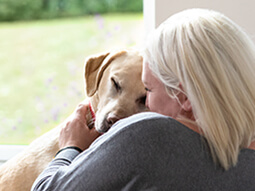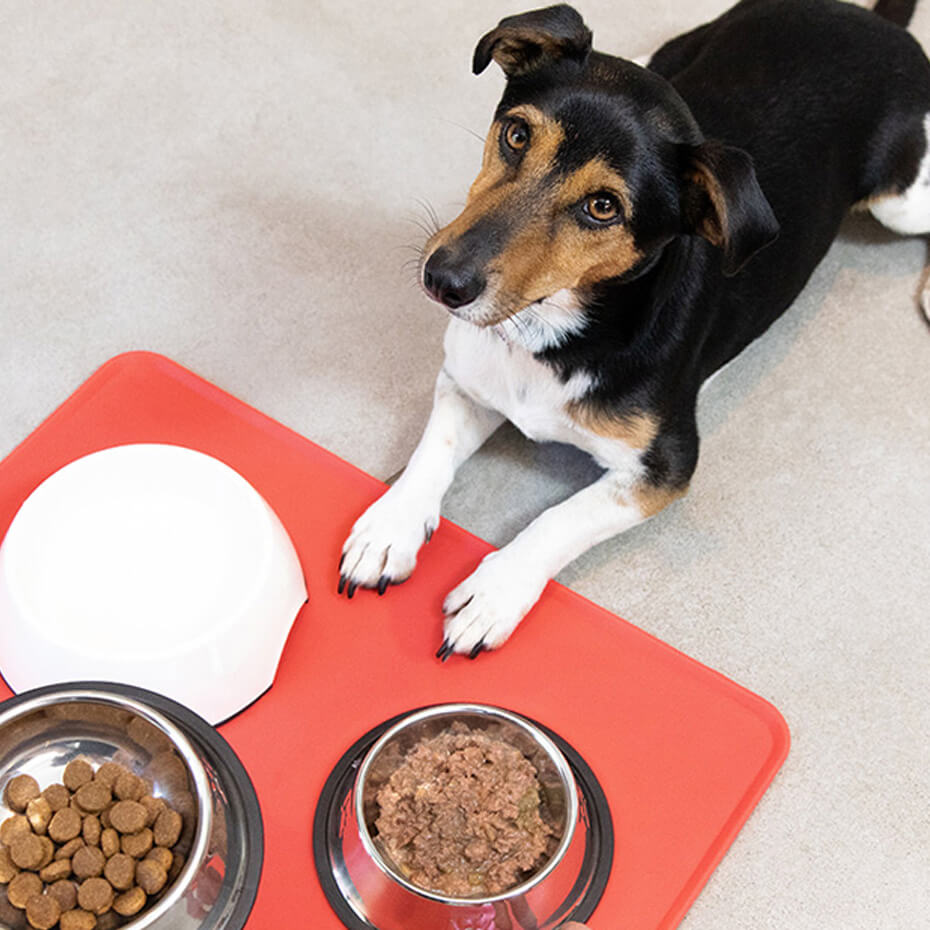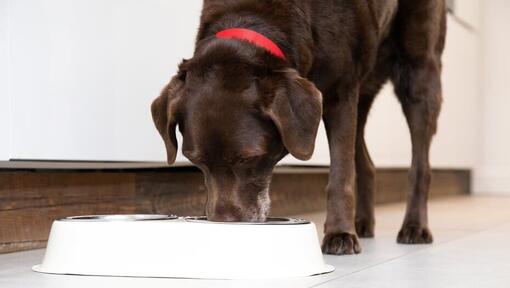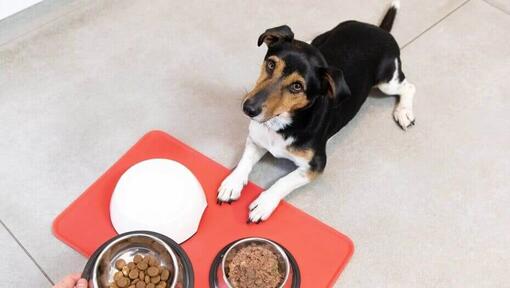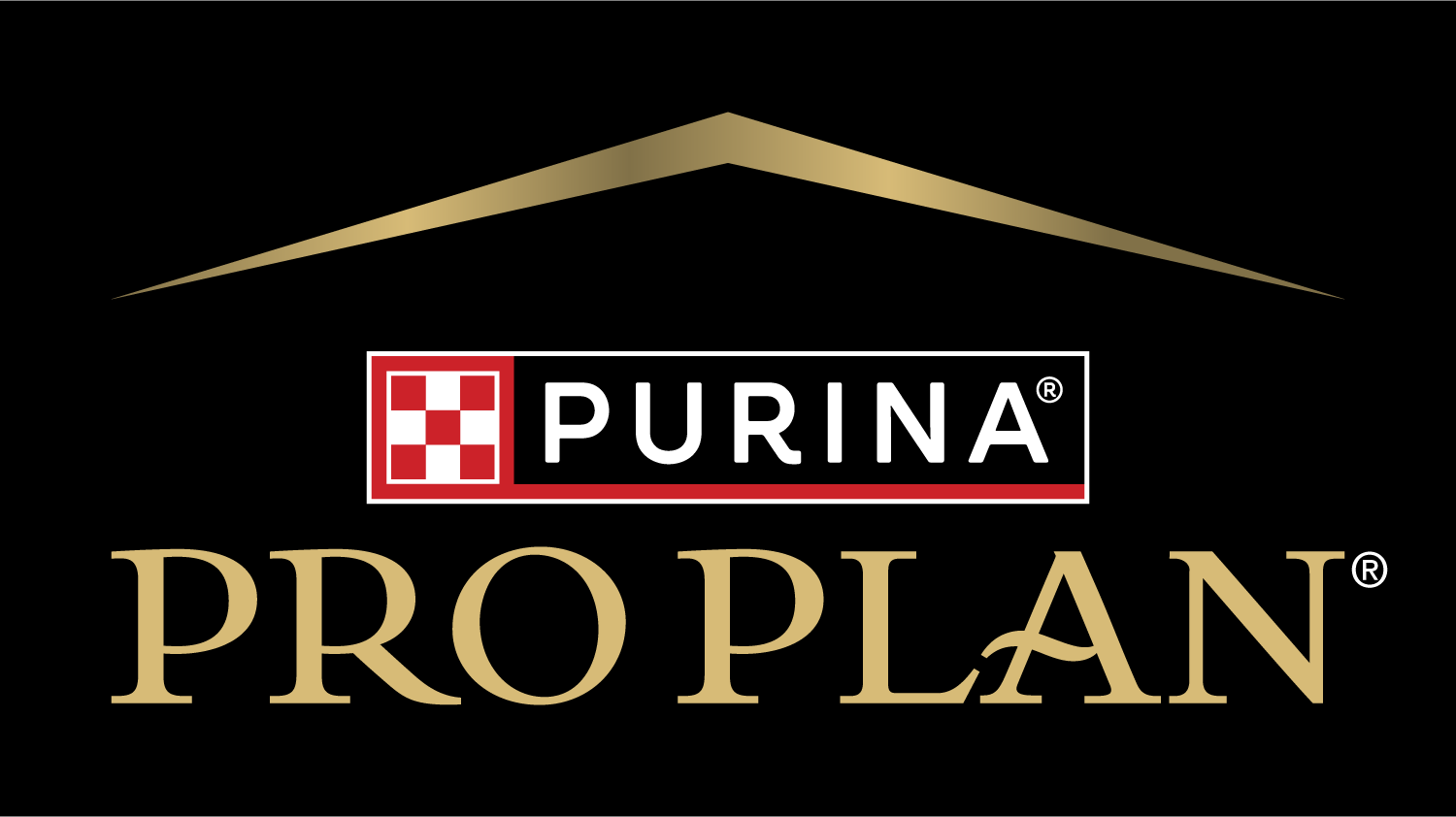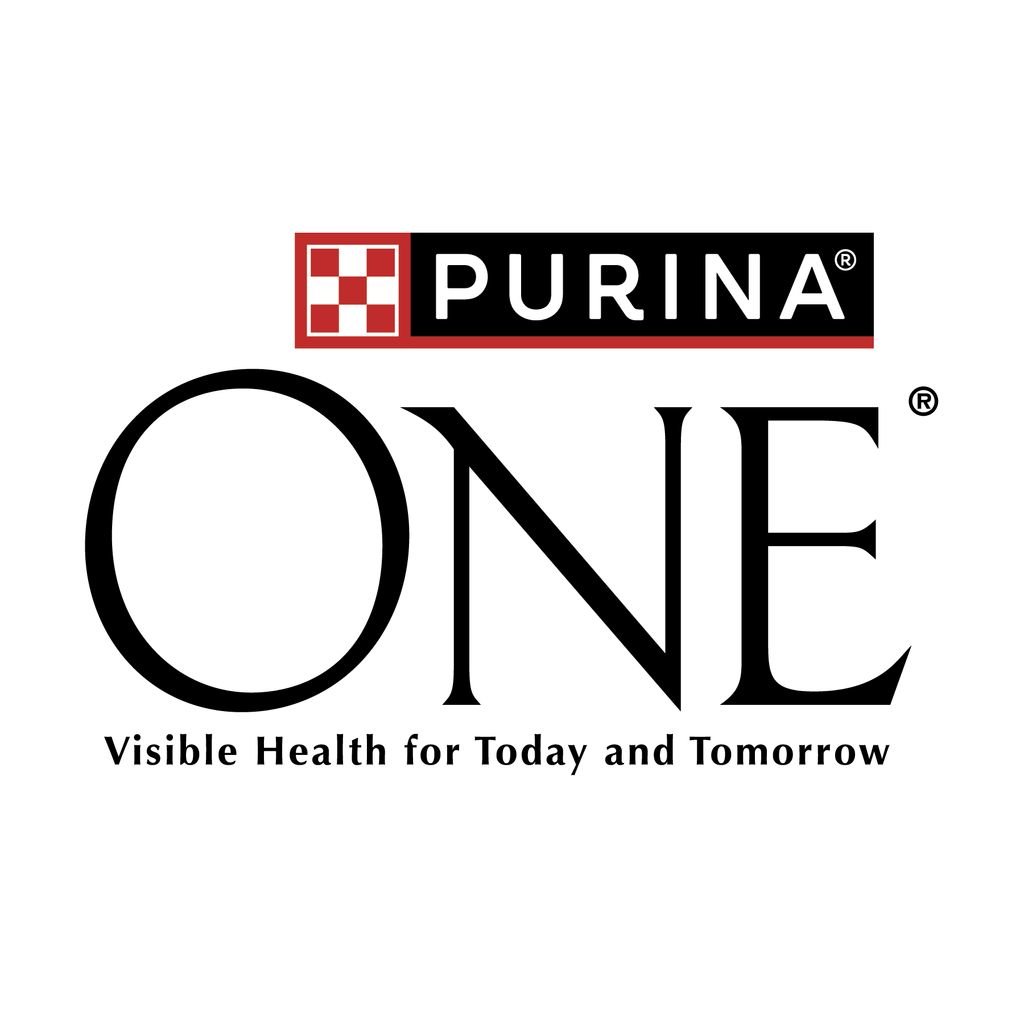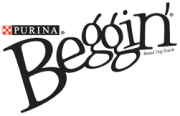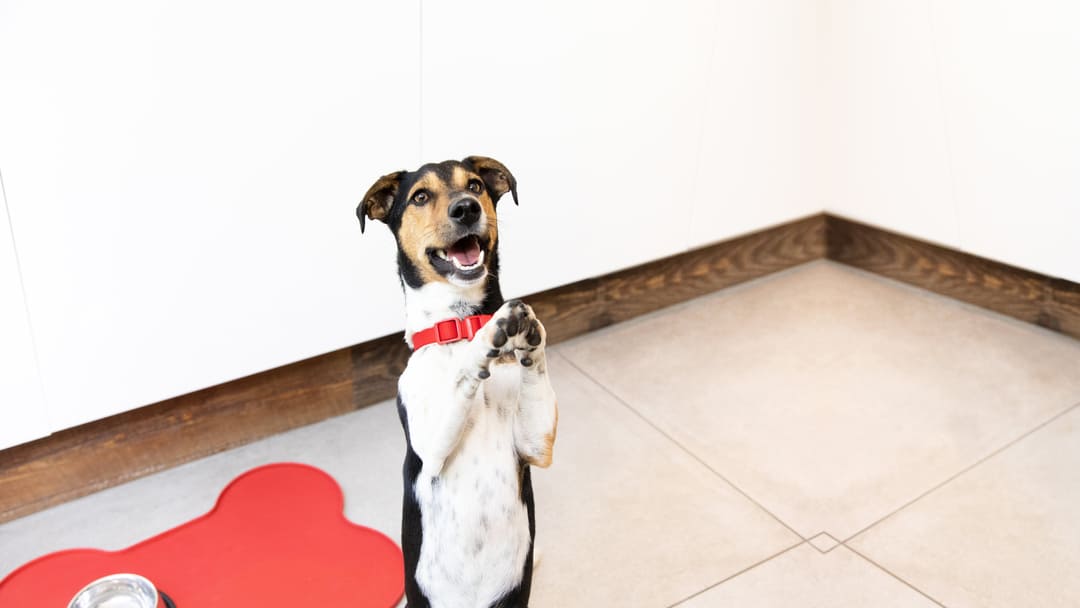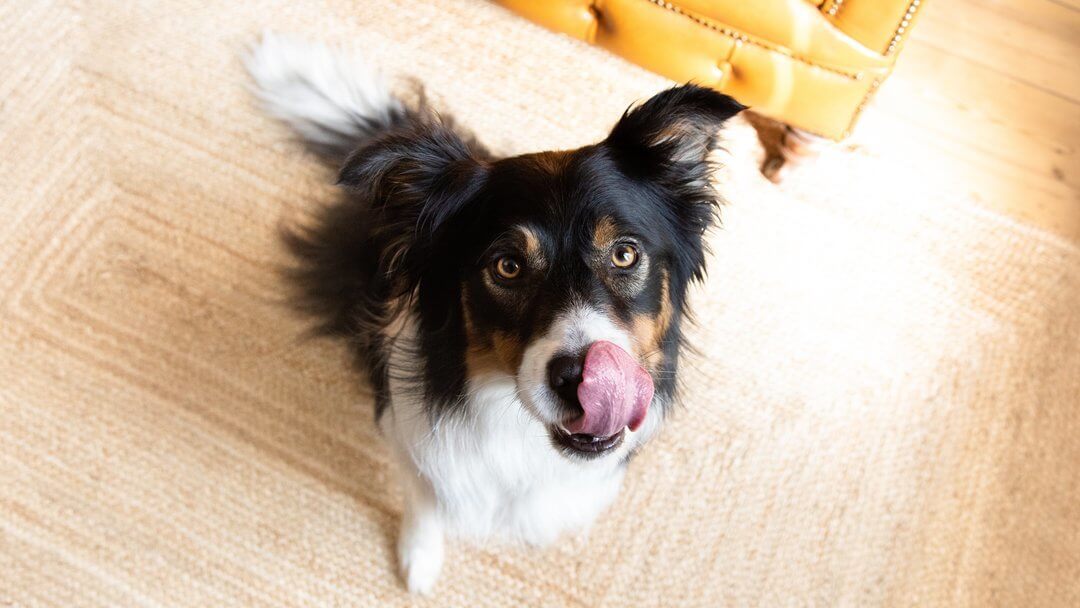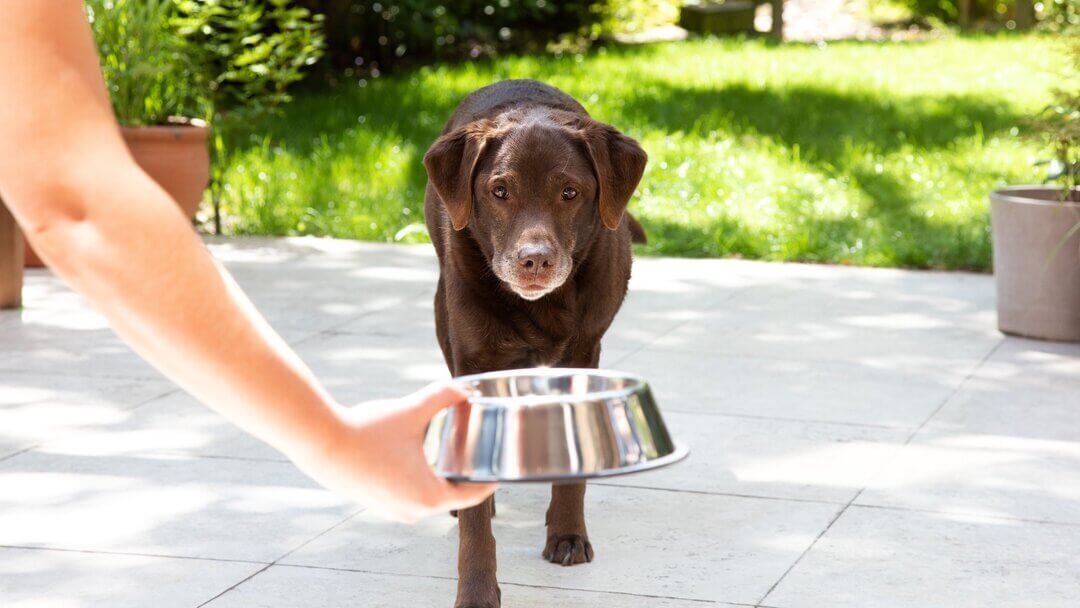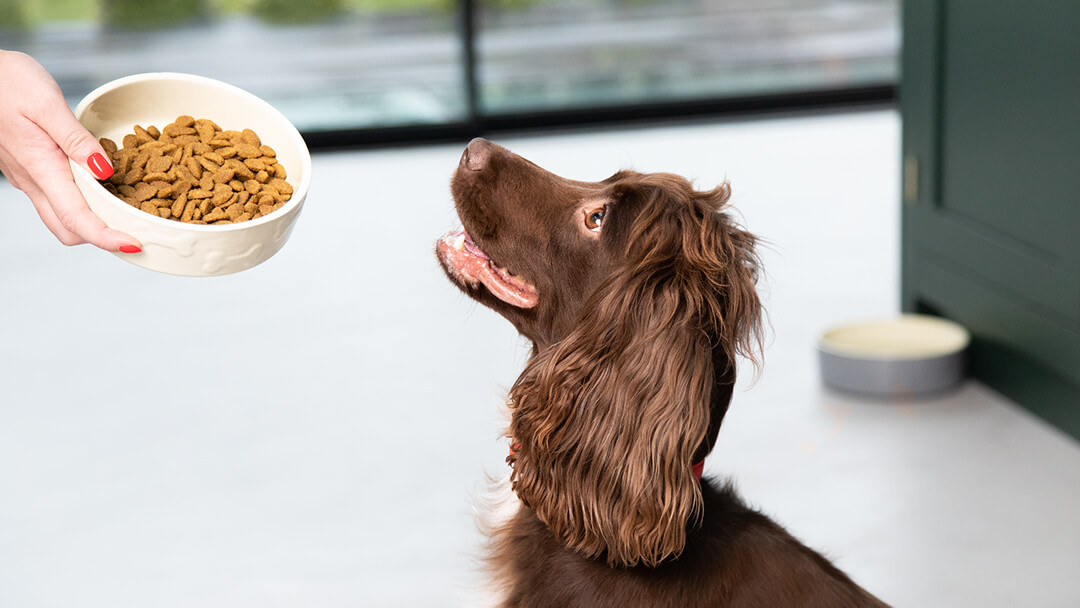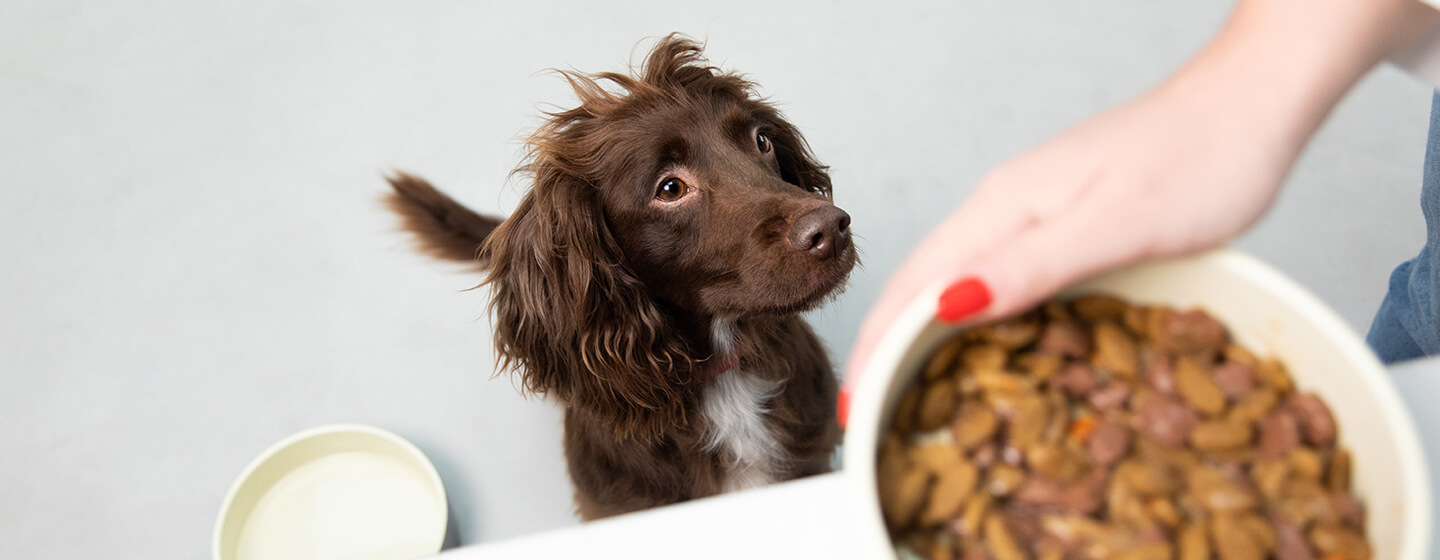
Most dogs love nothing more than meal time! As soon as you open their favourite food they’ll run in with their tails wagging, whether they’re eating a dry kibble or a wet food.
Both wet and dry dog foods are nutritionally complete and balanced, and will provide your canine friend with everything they need for their health and happiness. But you might have wondered what the benefits are, and which your dog will prefer.
- What is the difference between wet and dry dog food?
- Which one is 'better'?
- How can you choose between them?
Read on to find out more, and help you decide whether your dog will prefer wet or dry dog food.
Wet dog food contains more water
Wet dog food, of course, contains more water than dry kibble. This means that each meal will appear slightly larger, meaning there’s ‘more’ for your dog to eat, and each meal will last longer too. This water is also a small source of hydration, which is helpful if your dog doesn’t drink as much as they should. Even so, if you serve wet food ensure they always have a bowl of clean fresh water on hand! Many types of wet food also come in portion sizes, such as individual cans or pouches, which makes serving your dog very easy.
Senior dogs may prefer wet dog food
Wet dog food may also be better for dogs who are older. This is because wet food tends to have a stronger aroma, which can tempt dogs whose sense of smell or taste isn’t as good as it used to be.
This will encourage them to keep enjoying mealtimes as much as possible, and will also encourage them to finish their food if their appetite isn’t what it used to be.
Wet dog food may be easier for older dogs to chew and swallow. If their dental health isn’t what it used to be, or they have difficulty swallowing, wet food might be beneficial.
Other things to remember about wet dog food
If your dog tends to eat all their food at once – as most do! – wet food will be completely fine. However, wet food shouldn’t be left out for too long, so if your dog tends to graze or doesn’t come straight to the bowl, dry dog food might be better.
If your dog’s wet food doesn’t come in a single serving, you’ll have to store any opened, unused food in the fridge – but remember that it’s best served at room temperature. If your dog is a messy eater, wet dog food can also cause a bit more trouble at mealtimes – although if they really prefer wet food, this is worth putting up with!
Dry food can be left out for longer
If your dog doesn’t come running straight to the food bowl or they don’t eat all their meal at once, dry food might be more suitable as it can be left out for longer.
Additionally, unused opened food doesn’t need to be left in the fridge – simply seal the bag or box and leave it in a cool, dry place. Dry dog food also tends to come in larger packets than wet food, meaning it’s easier to keep a large stock.
Dry dog food portions can be easily adjusted
Dry dog food tends not to come in portions sizes, but this can be handy for many owners, as it means portion sizes can easily be adjusted to your dog’s needs. If you have a large breed dog, for example, it’s easy to serve them a larger portion than you would a small dog – following the guidelines on the pack, of course.
Dry dog food is also handy as you can easily use single pieces of kibble as a treat, either for training or for motivating your dog to play a game (such as ‘hunt the kibble’). This should be measured against their daily food allowance, so you’re not giving them too much food overall, but this is a lot easier with dry food than with wet.
Dry food may be better for dental health
There is some evidence to show that dry dog food may be better for dental health. It’s less ‘messy’, which is ideal if your dog tends to get overexcited at mealtimes. And of course, some dogs simply prefer crunchy or soft kibble to wet food!
The Bakers® range of dry dog food includes specific recipes for puppies ,adults and senior dogs, as well as a recipe specially formulated for weight control.
Other things to remember about dry dog food
If you have an older dog, dry kibble may not be as attractive as it doesn’t have such a strong smell. Dry kibble can also be more difficult to chew and swallow if your dog has a dental condition.
If you’re still not sure what to feed your dog, it’s always a good idea to ask your vet for advice.
